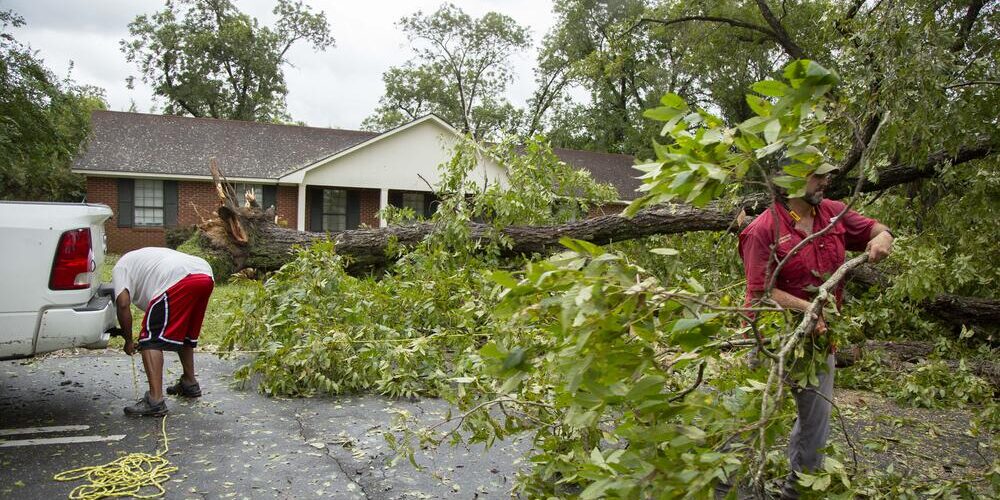A year after Hurricane Helene tore through Georgia, Augusta is still reeling. The storm struck on Sept. 27, 2024, leaving thousands without power for weeks and flattening entire neighborhoods. Today, tarps still cover some rooftops, and vast stretches of tree canopy remain lost.
Driving through Augusta, Richmond County Extension Coordinator Campbell Vaughn recalls the destruction vividly. “I mean, there was an oak tree on this house right here that was — it had to be 3 feet in diameter,” he said to Georgia Public Radio, pointing to a scarred neighborhood in Murray Hill. “God, house after house after house was just destroyed.”
According to the Georgia Forestry Commission, Augusta lost more than 30 acres of public tree canopy — about 20 football fields’ worth — with far greater damage on private land still being tallied. The losses have intensified Augusta’s heat, with Vaughn measuring surface temperatures over 100 degrees in unshaded areas. “That’s on grass,” he noted. Shade, by contrast, was 16 degrees cooler, as reported by Georgia Public Radio.
The city’s recovery has been slowed by financial strain. Richmond County Finance Department official Timothy Schroer recently warned of an $11 million budget shortfall as Augusta awaits FEMA reimbursements. “Just because of the magnitude of Hurricane Helene and the timing we’re not sure if FEMA is going to give us all our money back,” Schroer said.
Community groups have tried to fill the gap. Rev. Christopher Johnson of the Greater Augusta Interfaith Coalition deployed hundreds of volunteers after the storm and sought federal grants to replant trees and strengthen disaster readiness. But federal cutbacks scrapped those funds earlier this year. “I think we need take life and health serious enough to plan for disasters that we know are inevitable,” Johnson said.
For residents like disc golfer TomMac Garrett, the changes are stark. “It changed the city,” he said. “It’s known as the Garden City, so we’re going to get cooked from the summer heat.”
Experts warn recovery will take decades. “Yes, we won’t have 300-year-old trees still,” said Seth Hawkins of the Georgia Forestry Commission, “but in 80 years, we can have a community forest again.”

